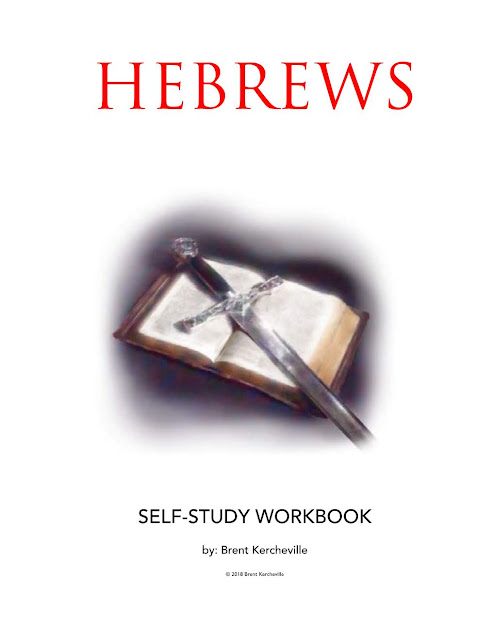Hebrews Chapter Ten Verses 11-18
HEBREWS CHAPTER TEN VS 11-18 (USING KING JAMES STUDY
TEXT, STUDY BOOK WILL REFERENCE A DIFFERENT VERSION FOR READING)
Heb 10:11 And every priest standeth daily ministering and
offering oftentimes the same sacrifices, which can never take away sins:
Heb 10:12 But this man, after he had offered one sacrifice for sins for
ever, sat down on the right hand of God;
Heb 10:13 From henceforth expecting till his enemies be made his
footstool.
Heb 10:14 For by one offering he hath perfected for ever them that are
sanctified.
Heb 10:15 Whereof the Holy Ghost
also is a witness to us: for after that he had said before,
Heb 10:16 This is the covenant
that I will make with them after those days, saith the Lord, I will put my laws
into their hearts, and in their minds will I write them;
Heb 10:17 And their sins and iniquities will I remember no more.
Heb 10:18 Now where remission of these is,
there is no more offering for sin.
Main Point: The writer extends his argument that the old system of sacrifice was a reminder of sin to the one making the sacrifice and to God. Within this new covenant, ONE sacrifice will bring FREEDOM from sin/iniquities and the remembrance or judgment associated with it!
5. Explain what is better about the work of
Christ than the work of the high priest under the old law, according to this
passage: (Per the last section) – Those whose will is directed by God will
be sanctified. The writer is again proposing the authority of God “the right hand of God”. This is the foundation for a perfected offering “offered one sacrifice for sins for ever”. Those that are purified (14), who have
God’s “laws” written on their hearts, have the assurance of freedom from sin (take away sins) by personal actions, and the
natural consequences that were once associated with the law of sin (I remember no more). A system of law is simply
not designed to accomplish that.
6. In verse 16, the writer quotes Jeremiah
31 for the second time. What do you believe is the writer’s main purpose for
using this quotation in this text? Not dissimilar to the previous
reasoning. This statement clearly explains the intent for this covenant….to
capture the heart. It encompasses mind body and spirit. It cleanses and frees
the soul from the specter of guilt. Unlike the law that requires man to
recompense to God for misdeeds, this new covenant requires the soul to gain a
clearer understanding of God as a father and merciful provider. It should be
understood that people throughout history understood what it meant to have
their hearts captured by God….but it did not happen out of compulsion, rather,
it was by considering God honestly and thoughtfully. The law set a very narrow
view of God for many. Others saw justice that convicted. Some saw this justice
as a beautiful testimony because of its sureness (David). People like David had
God written on their hearts because of what they believed about God, not
because of the law.
7. What does it mean that God would write
his law on our hearts and minds? As a reference, read PS.51. This Psalm is
a song of a repentant heart. More importantly, it is a reaffirmation of a trust
and reliance on God and His mercy. Repentance is good. Trust is yet even more
important. David tells God, “bring me back….make me whole again”. David
understands the foundation of having God as a father and not a foe. More
importantly, he desires God….this is not just a Psalm of compulsion, but one
driven by love.
Additional:
11) take away -4014 -From G4012 and G138
(including its alternate); to remove all around,
that is, unveil, cast off (anchor);
figuratively to expiate: - take away (up).
Verse 11 “take
away” is even more complete than the verse 4 reference.
14) sanctified: G37 - From G40; to make holy, that is,
(ceremonially) purify or consecrate;
(mentally) to venerate: - hallow, be holy, sanctify.
(roots- “an
awe-ful” thing, sacred)
Same as verse 10
18) remission (forgiveness) – G859 - From G863; freedom; (figuratively)
pardon: - deliverance, forgiveness, liberty, remission.

Comments
Post a Comment